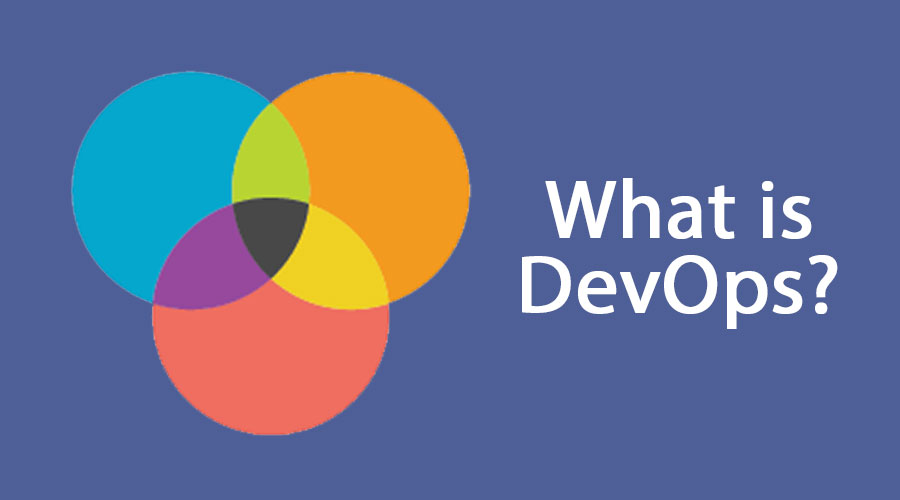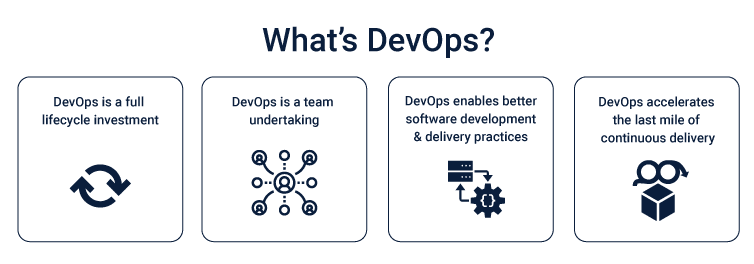
Friends, today I am going to let you know which tools are much better in DevOps, and how can we start our learning DevOps, by the way, all the DevOps tools work individually. Now, you don’t need to worry about learning, don’t think where I can learn DevOps with quality, You have reached a very good place, where I’ll let you everything about DevOps through this blog. Nowadays technology is changing so fast that most companies are migrating their data to the cloud, which is creating a high demand for DevOps professionals in the IT Industries. DevOps is one of the important skills needed for those people who are looking for jobs in IT companies and cloud computing domain or who want to make their own future in this domain.
First of all, let’s know about DevOps:-
What is DevOps?

DevOps is a software engineering culture or methodology that aims at integrating software development and software operations Teams. DevOps methodology includes some tools like Terraform, Ansible, Docker, Kubernetes, Jenkins, Git, Nagios, etc. It is a suite of agile methodologies for processes, like integration, testing, and deployment required to reduce software products’ time-to-market and letting developers be proactive based on organizations’ demands.
Below you can get some Benefits of DevOps
The Technical Benefits:
- Problems are less and can be fixed easily
- Software delivery becomes a stable process
- Resolving of problems becomes faster
The Business Benefits:
- Features are delivered more quickly
- Operating procedure becomes smooth and controllable
- Gives more time to add value
There are cultural Benefits:
- Higher employee commitment
- Happier, more productive teams
- More opportunity for professional development

These are the best tools to learn DevOps:-
Terraform – Terraform is an Infra provisioning tool and It is created by Hashicorp and written in Go. It does a great job in maintaining the state of your infrastructure using a concept called state files.
Ansible – It is an open-source IT automation and configuration management tool. We can manage multi-tier deployments very easily using Ansible. It offers to write scripts in YAML, and it uses the same tools used in the administration of Linux.
Docker – It is a tool designed to make it easier to create, deploy, and run applications with the help of containers. It simplifies software delivery by making it easy to build and share images that contain your application’s entire environment or application operating system.
Kubernetes – It is a container management system developed by Google and It is an open-source, portable system for automatic container deployment and management. Kubernetes can easily manage your system’s canary deployments.
Jenkins – It is an open-source automation tool written in Java with plugins built for Continuous Integration purposes. It is very helpful to automate the parts of software development related to testing, deploying, building, facilitating continuous delivery, and continuous integration.
Git – It is an open-source version control system (VCS) written by Linus Torvolds. It is a distributed version control system and software Configuration manager Which is called source code Management.
Nagios – It is a Network Monitoring Tool, open-source and free. It is one of the best open-source monitoring tools. It provides monitoring including data gathering, data archiving, dashboards, and alerting for systems, networks, and infrastructure.
If you are planning to start your career in DevOps then I would suggest to you some best places where you can get quality training from experts.
There are few things, knowing which really makes the process easy like :
- Basic understanding of Linux/UNIX system concepts and administration
- Familiarity with Command Line Interface (CLI)
- Familiarity with a Text Editor
- Would be better if comfortable with any scripting language like python for automation.
If you are looking for Free DevOps Videos and Tutorials then please follow the DevOpsSchool Youtube channel:-
https://www.youtube.com/c/TheDevOpsSchool/videos
I hope this blog will be helpful for you!
- DevSecOps Foundation Certification Program by Rajesh Kumar - July 14, 2024
- Mastering Qualitative Research: The Role of Focus Groups in Data Collection - July 11, 2024
- What is robots ops? - July 10, 2024

